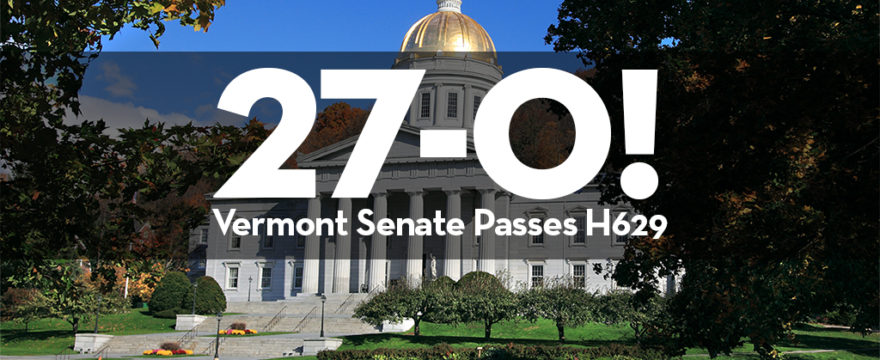Vermont’s unrestricted equal rights bill passed the full Senate on April 8 on a 27-0 vote. It now returns to the House for final consideration, including whether the House agrees to provisions added during the Senate process.
It has been an eventful week in the Vermont Senate. After H.629 was favorably reported out of the Senate Judiciary Committee by unanimous vote last week, the bill passed second reading on the Senate floor. Senator Dick Sears, an adoptee, introduced the bill and discussed two proposed committee amendments to the House version of the bill. The first amendment reduces the time before the bill takes effect. The House version called for a July 1, 2024 effective date; the Senate version now proposes a July 1, 2023 effective date. The second amendment makes changes to the contact preference form, adding a section where a birthparent may include information they believe is important for the adoptee to know. This information could be anything from medical history to the stated reasons why a birthparent may or may not welcome contact.
Today, the Senate voted 27-0 to pass the bill, with one additional amendment being sent to the House for further consideration.
Latest Amendment Addresses Records for Survivors of St. Joseph’s Orphanage
Between the second and third readings of H629, Senator Chris Pearson requested an amendment to the bill. The amendment would add language to require the Vermont State Archives and Records Administration, with the support of the Department of Children and Families, to submit a report next year on what records state agencies retain about former foster youth and wards of the state who were not adopted, the agencies that have retained those records, and a proposal for legislation that would enable former foster youth and former wards of the state to access documents concerning their background, medical history, and other personal information. The recommended amendment was approved by the Senate Judiciary and, later on April 8, added to H.629.
Next Steps
The amended Senate bill will return to the House for consideration. The House has a few options:
- Concur with the Senate version, making this version the final version of the bill that will go to the Governor for approval.
- Concur with the Senate version and request any additional amendments; or
- Request a conference committee with the Senate Judiciary Committee to negotiate and reconcile the differences between the two bills. This last option is unlikely, as conference committees are not often a desired resolution.
What’s Likely to Happen?
H.629 is a high priority for both chairs of the House and Senate Judiciary Committees. We are optimistic and hopeful that the process will run quickly and smoothly now that it the bill has been approved in both chambers, though with differences.
Once the final language of H.629 and all proposed amendments are agreed upon, the final bill goes to the Governor’s office for consideration and approval.
